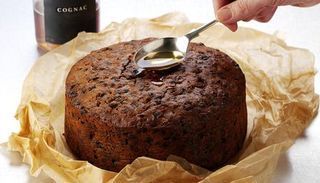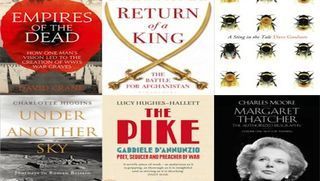Mary Beard's Blog, page 39
December 6, 2013
Do you love your country?
I've already compared doing BBC Question Time to doing an exam -- in the sense that you have to do the revision, and try to spot the questions (and the other night, I had got the PISA educational tables, Boris's outbursts, and the later retirement age).But the other side of the coin (again like an exam) is that there are all those questions you worked on, but never came up.
For me, there were a variety of these (nothing if not risk averse when it comes to exams). But one was the "Do you love your country?" question -- as asked by MPs to Alan Rusbridger. I had a sneaking feeling that this was a very plausible last quick question, for the three liner answer from each of the panel members. So what the hell would I say?
Now I don't want to give the impression that the QT preparation method is some version of rote learning. It wouldn't work anyway (as the basic questions always come in different formulations, which need different answers). All the same, you have to run through a few options.
On this one, I thought I saw the way forward. Yes, I LOVE my country. But I am not IN LOVE with my country.
I mean by that, I am not passionately obsessed with my country, so that it can in my eyes do know wrong (we all know that temporary feeling about an adored object).
Instead, I am in a long term relationship with my country. We've been together a long time now, and we know that relationships of that sort include disaggreements, and telling your partner where you think they have got it wrong. Patriotism, in other words, is grown up love.. not a crush.
I thought that something along those lines might work pretty well (which is why I'm sharing it!). But I didnt get a chance to use it as no such question emerged.
As it happened, it was lucky that the programme got shown at all, as just as the recording finished the death of Nelson Mandela was announced. Hugely sad, and era-closing event -- but as I have said before, global tragedies often mix awkwardly with personal self interest. I confess that when it looked as if the BBC might not show QT at all, one of my reactions was entirely (and unworthily) selfish despair. Oh help, I have just spent days prepping, travelling (which with trees on the line between Cambridge and London was not the simple sprint it usually is) and doing....and no one will ever see it?
In the end they made a sensible decision to move it to BBC2 and put it later in the evening (late enough so I could even watch when I got home). You can get the programme on iplayer.
December 3, 2013
Question Time Prep
I am not expecting much sympathy for this little cri de coeur. I had said, weeks ago, that I would be available for Question Time on 5 December. I hadn't then quite realised how close it would be to getting my Laughter book finally dispatched. I had thought that I might have had a good few weeks to catch up with the human race, and to prep gently with the newspapers.
In fact, I pressed the send button, gave my final lectures of term (actually last one tomorrow), have read great chunks of work from my very active PhD students, and am now beginning to wonder what kind of stuff will come up on the programme. (No, you dont know the questions in advance.)
In a way, that's why I like it. It is bit like doing an exam .. with all the question spotting, the prep, the thinking (and only humiliation facing you if you mess up, not (all being well) a career-ruining disaster).
Anyway, I have spent the last few days buying more newspapers than I could possibly read, of all political complexions, and trying to predict what the hot topics of the day will be in East London on Thursday.
If I were to tempt fate, I would predict some selection from the following: Dave's visit to China (did he REALLY take Charles Moore's Thatcher bio as a gift for the Chinese leadership?); UK attitudes to the EU (and vice versa); Boris and IQ's (a bit old maybe); the PISA education rankings (if any politician talks any more about this being a "wake-up call", I'll give them the "hard-working families" treatment), energy pricing, Osborne's Thursday statement, the obviously sad case of the forced Caesarian (though many more people seem to think they know what has happened than actually do....it's a foolish person who pontificates on this one, I think)... and...err. Ok give us a hand. Any ideas? All welcome.
And if you say: why on earth do I do it after what happened to me last time, I have to reply: well, that is the point. You can't let women be frightened off these programmes just because of a lot of vile, but ultimately silly, internet abuse. And if I don't go back on, what message would that send to other women out there, who might be thinking of putting their head above the parapet too?
Besides, the programme is nerve wracking, but quite fun in its way!
Hoping I'm still saying this, this time on Thursday night.
December 1, 2013
Enoch Powell and the chatty barber
Sorry everyone, we're still on laughter I'm afraid (haven't had a life outside the "gelastic community" lately). But this is, I think, an unexpected twist -- which was the silver lining of the cloud of last week, when I had got into a mess with the very end of the book.
In part of the offending sections that I had sent to my friend in my cry for help, I had referred to a joke in the Roman jokebook, the Philogelos, about a chatty barber. "'How would you like me to cut your hair?' asked a chatty barber of his client. 'In silence' came the reply." (And exactly the same gag is attributed by Plutarch to the fifth-century BC Macedonian king, Archelaus.)
In his comments on my rather inchoate, badly-in-need-of-improvement version Peter had also written "I've always heard that joke attributed to Enoch Powell" -- and his checking it out with the local Powell expert confirmed that to be true.
It was only a few days later that I saw how useful this could be to me. In the Afterword I wasthen writing, I wanted to reflect a little on how (and why) we still tell "Roman" jokes. And this was a perfect one to cite, but I needed a "source" (yes, dammit,even in the Afterword I think it has to have a footnote).
So I scanned the web and found quite a few references to it.. sometimes as "apocryphal", sometimes as bona fide. And there were quite a few comments of the type "I couldn't stand Powell's politics, but this is actually quite a good joke." Nobody appeared to realise the joke's pedigree.
I was drawing a blank, however, on an actual source for the Powell version -- until I came across a little hint that the fons et origo was in Woodrow Wyatt's diaries.
At this point, a crisis of conscience ensued. Should I hoof it off the library to see if I could track it down, or should I get on with finishing and fudge it a bit, with a reference to some website.
You'll be pleased to know I decided on the library.
I ordered up the three volumes of diaries online (that's progress for you), and by the time I had got to the UL's West Room, they were waiting . . . three very fat volumes. The heart sank.
But I bravely sat down, and turned to the index of volume 1. There were just one of two entries for "Powell, Enoch".. and with the kind of serendipity you dream of, the first one I turned to was IT.
This is a snatch of Wyatt had to say:
"There is a very chatty barber in the Commons who never stops telling MPs whose hair he cuts about politics and what his views are on the world. Enoch Powell went to have his hair cut by him one day, sat down and the barber said, 'How would you like your hair cut, sir?' 'In silence' Enoch replied."
Now that's not quite the horse's mouth, but it's not so very far away. And, given that the chattiness of the barber was well known, it's pretty clear that we don't have to see Powell as unprepared for his quip -- more like waiting for the perfect occasion to use it.
Wyatt himself doesn't appear to have known the classical archetype any more than the others who repeat it. My own hunch is that that would have been a big part of the pleasure of the joke for Powell (classicist by training). Everyone was spreading his quip -- but they didnt know what he knew: that it was a classical joke all along.
Anyway, when my book comes out, you'll find that (and more) in the Afterword.
November 28, 2013
The last paragraphs
When I reflected in my last post about the pleasures and perils of book dedications and acknowledgements, I was being a tiny bit premature.
The truth is that I am still not entirely happy with the last few pages of the last chapter. Most of the chapter is about the Roman joke-book, the Philogelos (itself the subject of a number of blogs in the past), and I'm qute happy with that. There's lots of interesting stuff to say about the form and content and arrangement of the jokes, and what they might tell us about laughter in the Roman world. (True the book is written in Greek, but it is ideologically located in Roman imperial culture, and indeed that mixture is part of the point.) And, all in all, I am pretty content with what I've said on that score.
The trouble comes towards the end, with how to broach that which must finally be broached: namely, the very nature of a joke COLLECTION. Once you put jokes together in a book.. they are no longer simply plural jokes; they have changed their status to become "collectibles" in some way, objects of classification, reference and so on. That's what I was meaning when I said a bit ago that the Roman world was the site of the "invention" of the joke as we know it.
I know exactly how I would put this over in a seminar, orally. But I haven't quite cracked it on paper. A version exists and indeed has been sent to California, so if I was struck by suudden death, it could all be published. But the inadequacies of my text are gnawing at me.
I dont know if people in general realise quite how preoccupying, frustrating and time-consuming writing a work of non-fiction can be; and yes gnawing (you wake up in the middle of the night with the sentences going round in your head). It's probably the same for fiction, but I think people expect that more (tirtured novelist creates work of genius..). Non-fiction is a bit like the old cliché of the gymnast... the best books often read so "naturally" that it is easy to assume that there wasn't all that much artifice and struggle involved. As if it was just writing down what you know.
So what is the solution for me?
1. The radical version is a complete restructuring/rethink. My gloomy experience is that if a section or paragraph is hard to write it's because you're trying to say the wrong thing. Get the thoughts straight and it will fall into place. That means taking a big enough break from it to be able to think afresh. No time for that.
2. The primrose path is the demon drink. Now actually a glass or two of wine can be rather a good idea in these circumstances. It can remove the inhibitions just enough to get the ink flowing. The trouble is that you have to know when to stop, The second glass worked a treat last night, the third ruined it.
3. The ostrich version is to pretend that your troubles have quite other roots. I have been through the superficially attractive argument that the pages are really rather good; it's just that I am not ready to let the damn thing go. I'm trying to put off the process of finishing, because I am just too wedded to the project (and scared of the next one). But, nice psychoanalytical fantasy that it is, I fear it just isnt true. The pages do need more work.
So what? Well I confess the only recourse left is the modern author's version of "phone a friend". I have emailed the last 4000 words to a mate, and said "help".
I am now going to look at his verdict..... and hope that while America is immersed in Thanksgiving, I can get a new version done, and send it off before they have even looked at the old one.
November 24, 2013
"Like making love in public"
I know that I am really, really getting to the end of the Laughter book, as -- apart from 20 or so lingering footnotes, plus 1000 word "coda" which I have more or less in my head -- I am left with only the acknowledgements and the dedication to ponder.
Dedications are tough. The heading of this post is a quote from that old publishing genius (and rogue), Colin Haycraft. "Like making love in public," he used to grow, as one contemplated a dedication. And he backed it us with any number of cautionary tales of those whose beautiful affair broke up between lovingly scrawling "For my darling Kate " on the first page of the typescript (as it was then) and the book rolling off the presses. There were dramatic stories of "mercy dashes" to the printers in order to replace the no longer darling "Kate" with "Jill" or "Jack", or whoever the new inamorata/o happened to be.
I'm not sure that I 100% agree. I havent (yet) irrevocably quarrelled with anyone I have dedicated a book to. And mostly they still feel right (in fact, in some ways, dedicating Confronting the Classics to Peter Carson was one of the best presents I coud have given him). And some I've seen do manage to hit the nail on the head. Was it Maurice Beresford who dedicated some book on medieval archaeology to "Mother who packed the sandwiches"? -- which I am sure she deserved. And then there was the dedication of some late edition of Lady Chatterley to the jurors who acquitted it.
But some -- incluing those that get picked out in articles on "clever dedications" -- do seem awfully arch. I'm not sure, for example, that "For Phyllis, who made me put the dragons in" would really stand the test of time. And an awful lot are just far too schmaltzy, like the one at the top of this post. Almost anything you say about your kids (beyond their names) tends to misfire. Be warned!
I think the basic rule is that you have to want to give the damn book to someone and, unless you're really clever, you have to keep it SIMPLE. I suspect I'm going to pass up the opportunity this time!
But I can't pass on the "acknowledgements and thanks". And that's equally difficult, and there are almost as many different styles. I can't bear those endless lists of thanked names that seem to include everyone in the field, as if to try to prevent any of them reviewing it (and in the process ensuring that only those who know not much about the subject get their hands on). Or alternatively they're trying to say, "Look at how well connected I am...".
On the other hand, I live in dread of leaving out someone I really want to thank. If you have been working on a subject for six years ago, you've incurred a lot of real debts. How easy it would be simply to miss out that great friend, who read half a chapter four years ago, when you were in a slough of despond and really put you on track again...You dont exactly keep a list as you go along: "people who've helped me and whom I will need to thank when this damn book comes out".
But I've started a list now, which I look at and add to each day, in the hope that in a week or so I will have got everyone down. If only..
Ok this is a pretty self-indulgent worry to be having, but I'm having it nonetheless.
(If you wonder why there is no question mark in the title, as seems to be needed, it is because S W Foska pointed out that the last seven or something post-headings had been question.. and enough was enough!)
November 20, 2013
"Constantine College": what's in a name?
I have been thinking a bit recently about what names we choose to give to educational establishments. It was prompted I guess by Radegund Hall at Coleridge Community College. Was it after the road or the pub ("Radegund Road" "Radegund Arms" etc)? Or was it after the saint? And, if so, did I think that was a bit non-multicultural?
Answer was, no I didn't.
Lets leave aside the fact that -- much as I admire Nelson Mandela's achievements and lessons for us (who couldn't?) -- I have got a bit fed up with the "Mandela Halls" springing up all over the country. Something of a band wagon effect I can't help thinking. That "Radegund" reference goes right to the heart of women's power in the early Middle Ages, and brings back to the attention of generations of school students a wonderful and feisty role model who isn't often remembered (she needs her hall, Mandela probably doesnt).
Anyway just as I was reflecting on this, I discovered that the University of York is intending to call its new college, "Constantine College", after the Roman ruler proclaimed emperor there in 306 AD.
At this point I began to feel a bit iffy.
The truth is I rather like the remembering the ancients, and indeed remembering that the ancients (Romans, I mean) really did tread our green and pleasant land. But, but, but...
For a start I'm a bit uncomfortable about the way that Constantine is being presented on the York Uni website:
"Our ninth college bears his name, not just as a celebration of York’s Romanitas, but also to define Constantine as a college with great character and vision."
"Romanitas" is one of those weirdly fashionable modern coinages. Hardly any Roman used ever the word (at least before Tertullian, early Christian activist), but it has become a slogan of a lot of modern scholarship -- who conveniently forget that, to all intents and purposes, it goes back to Mussolini. I have to say that there isn't a chance in hell that York (or any place in Britain) symbolised Romanitas (whatever that means ) in any period of antiquity.
If we want to say that there is an important Roman heritage in York, that is fine .. but Romanitas, no thanks.
I also feel more doubtful about Constantine's credentials as a "naming opportunity" anyway. Pretty brutal civil war leader, and the origin (though not to be fair the sole driver) of state Christian power. Character and vision? Who knows?
On the other hand, names (thank heavens) are eventually, in the fullness of time, just names. If I did some work, I could probably tell you just how ghastly the "named founders" of Cambridge colleges were.
And when I was a kid I used to walk up "Kennedy Road" in Shrewsbury, thinking it must have been named after the President -- when actually it was after Benjamin Hall Kennedy author (with some help from his daughters) of Kennedy's Latin Primer, and Professor of Greek at the Uni of Cambridge.
Who might "Constantine" be thought to be in 200 years? Your guess is as good as mine.
November 16, 2013
When is a book launch not a book launch?
The short answer is when the books have gone to the bottom of the sea.
Just the other day, we zoomed across to King's Lynn ("zoomed" would actually be the wrong word for the journey after Downham Market -- as there was a derailed freight train ahead and it was very unclear whether the our train would actually proceed further.. so we baled out and took a cab).
The occasion was the local launch of Simon Thurley's new book The Building of England. We already knew that something was up, as we had received an e-mail cancelling the London launch, on the grounds that the books had -- believe it or not -- been lost as sea, in the storm of St Jude,as they made their way between China (where they were being printed) and the UK. Why they were being printed in China, God only knows... but God must have objected. The picture of some calm bit of the journey is above.
As it happened, the "Hamlet without the Prince" book launch turned out to be extremrely nice -- no pressure to buy, every opportunity to praise sight unseen, and a sticky label that Simon would sign if you were desperate for when you finally got a copy. And a wonderful story to tell.
The hilarious thing (well, maybe not hilarious if you're Simon) is that there turns out to be a family history of books lost at sea. As he said in his speech -- which was all the funnier for there being no book --something similar happened to his grandfather, Humphry House, the Dickens man, and father of our mate, the art historian John House who died too soon, too recently. Apparently the first manuscript version of House senior's famous book, The Dickens World was got by a u-boat in mid-Atlantic and never seen again.
Anyway we are all pleased to know that The Building of England is currently being reprinted in Spain (not so far to travel), and will be available soon for your Christmas stocking.
November 12, 2013
A woman's work is never done?
Christmas is a great example of modern domestic anthropology. And a great example of how women exploit themselves -- with some pleasure, it must be said. I am talking cooking.
I can't any longer remember what exactly we did when the kids were really little about the cake and the puddling. I (sort of) know that they were always bought in -- where would I have got the time otherise. In fact I remember standing in front of a large display of pre-prepared Christimas puds in Eaden Lilley's (remember it, Cambridge folk?), trying desperately to make my mind up amomst the vast array (by alcohol content, I should say). There was a tap on my shoulder. It was Roger Dawe, who simply said "Mary, take that one". (It was a Matthew Walker's specimen, in case you are interested, and damn good).
I did, and jolly good it was. And I suspect only a few classicists will know quite how odd and surprising this encounter was. For those who aren't classicists, I should say that Roger and I are on far ends of the classical spectrum -- but despite out classical/ideological differences I shall always remember him with gratitude pointing me in the direction of a good pud (and talking to me later about the Philogelos). I suspect he doesn't know quite how grateful I am, on both scores.
But things (and rods for the back) move on.
I cant quite remember when I started to do the Stir Up Sunday routine and make my own. But I guess it's more than fifteen years that I have been recreating for the kids the Christmas they never had, and are increasingly committed to.
It's not that (dv) cakes and puddngs are difficult to pull off (fruit, flour, suet, brandy, cook is not a big challenge). But they do worry one in all kinds of ways.
The cake is actually easy enough. So long as you soak the fruit the evening before, you have about 90 mins mixing and then it is in the oven till done. You can go out and come back (as I did) and no disasters will have happened. Steaming the damn Christmas puddings is another matter entirely. If you have one big and two little ones on the gas, you have to be watching all the time in case the buggers dry out (burnt bottom, pudding ruined).
It's a whole load of silly sweat, but I am still kind of glad I have started to do it. It's the only ritual I do with any enthusiasm, and with no regrets. Watch this space for the purchase of the tree and mistletoe.
(By the way, I always do cake with Delia and pudding with Floyd: any reason to change?)
November 9, 2013
Those were the days?
Five years ago I gave the Sather lectures at UCBerkeley, on Roman laughter; and had a truly wonderful time. It's these lectures -- for those who havent been following very this long saga -- that I have just about finished writing up into book form (about 6000 words still to go), and am just at this minute waiting for the comments on the bulk of the manuscript from the Sather Committee itself. Don't count you chickens, Beard; but if all goes well, then the book will come out with the University of California Press.
So when one of my colleagues gave me this week a slim volume entitled "Fifty Years of the Sathers" -- written in 1965 by Sterling Dow to commemorate the first half-century -- it was a timely gift.
"Fifty Years" is one of those old fashioned academic memoirs that you think is frightfully quaint when you first pick it up. For a start Dow explains, as he sets the scene, that he always tried to leave his office on campus spot on 6.00, so he could hear the bells chiming from the lovely campanile that Mrs Sather also endowed: "when the evening air is full of notes rebounding from the marble walls of the buildings, rolling over the wide lawns, and filling the cool green walks under the trees". ("Hang on," I found myself thinking, "isn't this the time of the Berkeley riots? Didn't he notice anything else rebounding around the campus on his gentle stroll home?")
And there are all kinds of statistics lovingly wheeled out, in a kind of "Trivial Pursuit" version of Sather general knowledge. How many of the first fifty died between election and delivery? Answer "two" : Samuel Elliot Bassett and Benjamin Oliver Foster, in what must have seemed like a run of bad luck in 1936/7 and 1937/8 (though Bassett's lectures were published posthumously, so he was better prepared than me obviously. Who was the youngest Sather Professor? Answer "Henry Washington Prescott" (aged 41 in 1914/5 when he gave c 20 lectures on "The Classical Epic". Which was the longest book to come out of them? Answer "J. L Myres, Who were the Greeks (672 pages)".
But on a second look, what might seem at first sight a rather cloying institutional, turns out to have much more bite -- once you get the hang of the mid-twentieth century rhetoric.
Dow is actually fearless about saying which of the published volumes he thinks are the best ("again Page, Dodds and Syme excel" -- that is History and the Homeric Iliad, The Greeks and the Irrational and Sallust), and M. P. Nilsson's final lecture on "Olympus" gets the prize for the "supreme award" (published in The Mycenaean Origin of Greek Mythology). And he is engagingly frank about the mistakes that had been made: "Actually, among the 50, some selections have been better than others (!) . . . judgement can be fallible, mistakes can be made. (oh God, thinks Beard, hope i wont go down as a mistake!).
But it's gender that is the most striking difference. Today's Sathers have a really good and proper representation of women (and my mate -- and one time teacher -- MM is upcoming). But in the first 50 years there was just one woman, Lily Ross Taylor (and she was photographed for the rogues gallery to make her look as male as possible).
This gave Dow a bit of a problem when he came to discussing the dress code. The lectures were originally "evening performances", with the lecturer "in a black tie". Lighting restrictions in World War II shifted them to 4.00, but then some went back to the evening black tie routine -- " or," he conceded, "in the case of Lily Ross Taylor, its equivalent"). Right... ?
And the moral of my little read? Well, not to be put off a book by old-fashioned rhetorical surface (get the rhetoric and these guys are just as wry as us). And to wonder -- with trepidation -- now we will be written into the micro histories of our subject. Hope I wont be one of the mistakes!
November 5, 2013
Why do history?
Last night was a big one for me. I went to the Grierson documentary awards -- where I presented the award for the best history documentary to The Secret History of our Streets (Deptford High St), and was then justly beaten by Grayson Perry for the documentary presenter of the year award.
Actually, by the time Grayson was steppng up to the podium, I was several miles away at the presentation of the Samuel Johnson awards, for which I had been a judge (told you it was a busy evening).
You can see the six excellent books above -- everyone of which was really damn good; but Lucy Hughes Hallett was the eventual winner, for her biography of D'Annunzio (do read it, and the rest).
It ws a wonderfully good tempered and celebratory evening. And if there were disappointments (which of course there must have been) they were very generously kept in check -- in favour of a great party to give non-fiction a boost in all its forms.
But what of the choice? Someone did say to me in the course of the evening, "wasnt this shortlist a bit weighted towards history and the past?". That was actually quite an easy one to answer. For, it's only on certain narrow definitions that history is really locked in the past.
Dalrymple's book, for example, asks us explicitly to think about the links between nineteenth-century and more up to the minute western incursions into Afghanistan (message drawn by me: never invade Afghanistan). Higgins also directly links the past and present, asking how the Roman Britain still mens something even now.
And Lucy Hughes Hallett resonates in the same (if slightly less direct) way. One question her book raises concerns how we make our political judgements. Or -- to put it another way -- how do we deal with political leaders whose repellent policies don't always match their personal charisma or charm? D'Annunzio was clearly awful, in all kinds of ways; but he still commanded the love and admiration of many --and not just the stupid, or the proto-fascists (though there were plenty of them).
His lesson (to a modern world which wants easy black and white) is that we should think more carefully about our political leaders, whom we meet in many different mixtures and guises. Virtue doesn't come as a simple package (some of the most politically saintly, are personally awful -- and vice versa). So to take a pretty crude example: I have only met Nigel Farage once. I utterly abhor his politics (without saying that I think that he is a D'Annunzia style fascist -- far from it), yet I remain grateful not just for his courtesy on that occasion, but for his care in bringing me into the conversation, being a thoughtful dinner companion etc etc.
Now, I know there is an old, tired and silly cliché about Hitler loving his pets etc. But one of the things that The Pike makes us reflect on is how and why we admire those we do, and what for -- and how villainy and virtue don't come neatly wrapped.
It would be so much easier if they did -- but, given that they don't, it's a good idea to understand the messy, complicated mixture of good and awful evil that D'Annunzio represents.
Mary Beard's Blog
- Mary Beard's profile
- 4110 followers













